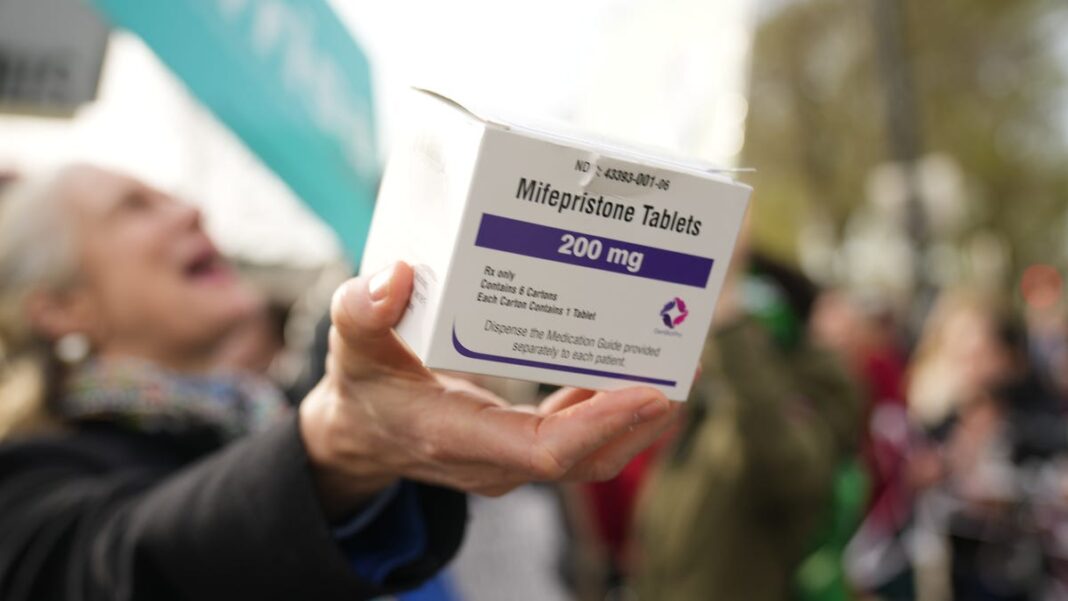Some women are stockpiling Plan B and abortion pills. Here’s what experts have to say.
Despite significant achievements for abortion rights supporters across the country, including the inclusion of reproductive rights in seven state constitutions, the prospect of another Donald Trump presidency has caused concern regarding abortion access. Many women have taken to social media to announce their plans to purchase emergency contraceptives and abortion pills before Trump assumes office in January.
Brynn, a resident of Oklahoma who requested anonymity, urged her TikTok followers to stock up on Plan B and pregnancy tests as soon as possible. “It’s wise to get them now in case they run out,” she advised. In Oklahoma, abortion is banned except in cases where it is necessary to save the mother’s life.
“I want to avoid fearmongering, but I think we need to be ready for potential changes,” Brynn told YSL News. Although Oklahoma implemented strict abortion laws in 2022 that only allow the procedure when absolutely necessary, she feels increasingly anxious after the election.
After the Supreme Court’s overturning of Roe v. Wade, state lawmakers have pushed various measures to restrict and criminalize the use of abortion pills. Wyoming was the first state to issue a ban on abortion pills in March 2023, although this law is currently on hold due to a legal challenge.
Brynn is preparing for the worst scenario: “If Plan B is readily available, why not have a few on hand? I don’t think anyone should hoard. Just have a couple set aside for emergencies.”
Stockpiling the morning-after pill
Following the election results on November 6, online searches for “Is the morning after pill legal?” surged by 700%, and inquiries about “shelf life of morning after pill” and “buying abortion pill online” emerged as trending topics.
Wisp, a telehealth service offering sexual and reproductive health care, noted a significant rise in sales post-election, as reported by CEO Monica Cepak. Sales of emergency contraceptives soared by about 1,000%, new patient orders for emergency contraception jumped 1,650%, birth control sales increased by 50%, and medication abortion requests rose by 600%. In comparison, Wisp had already seen a 900% surge in emergency contraception sales following the Dobbs decision in 2022.
“The rise in sales reflects the anxiety women across the nation are experiencing,” Cepak stated. “Women should take charge of their healthcare and feel empowered to invest in preventive reproductive health during this uncertain period.”
Beatrice Barba, a mother of two from Los Angeles, has proactively ordered mifepristone (a medication that inhibits progesterone, a hormone necessary for maintaining pregnancy) and the morning-after pill for emergencies. Even though abortion remains protected in California, she has growing concerns about future access due to high demand for medical and telehealth services.
“Women will continue to need this care, which may lead to a secretive distribution system,” she remarked. “Women may take matters into their own hands without involving a doctor.”
Is it safe to stockpile Plan B?
Experts generally affirm that it is safe.
Having the morning-after pill readily available can ensure timely use when necessary, enhancing its effectiveness. According to Cepak, it is safe to keep the morning-after pill for its typical shelf life of around four years.
“Many local pharmacies restrict the number of Plan B packs a woman can buy, which is why we are happy to provide options for 3 and 6-pack purchases,” she explained. “This approach empowers women to take control over their reproductive health and guarantees access to resources when they need them most.”
Dr. Jane van Dis, an obstetrician based in New York, refers to hoarding the morning-after pill and abortion medications as “disaster preparedness.”
“Having these medications available is wise in case they are no longer accessible,” she stated. “The more these medications are stored in the community, the better it is for everyone.”
Most patients taking mifepristone will complete their abortion, but some may require additional medical treatment or a Dilatation and Curettage (D&C) procedure, according to Dr. van Dis, complicating matters in areas where abortion services are illegal.
Will we see a shortage of these medications?
The situation has been fluctuating since the Dobbs case. For instance, Louisiana has restricted access to certain abortion medications by designating mifepristone and misoprostol as controlled substances.
Wisp continues to prioritize educating women about available resources while closely tracking legislative changes to adjust their strategies as needed.
“Many of our patients are situated in areas lacking reproductive health services, especially in restricted states like Texas and Florida,” Cepak noted. “We plan to enhance access by collaborating with pharmacies on supply chains and partnering with like-minded organizations.”

